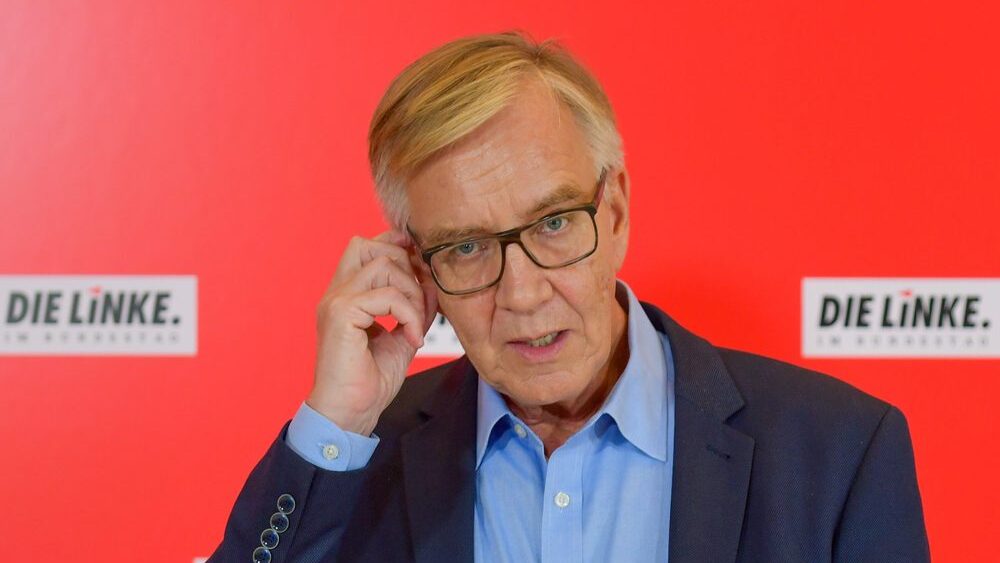
Die Linke Co-Chair Dietmar Bartsch
Photo: photocosmos1 / Shutterstock.com
Is the end in sight for the socialist Die Linke party after it was stripped of its parliamentary status in the German Bundestag? The grouping was placed into a state of financial liquidation, following the departure of Sahra Wagenknecht MP and her faction of nine other MPs, critical of the party’s embrace of woke culture and support for mass immigration.
Founded in 2007, Die Linke has been riven by intense faction-fighting over the party’s response to the Ukraine war and migration as the rise of the AfD cut into its traditional heartland in the former DDR.
Following the split with Wagenknecht in March, Die Linke dropped from its former strength of 38 MPs to just 28, thus falling below the threshold needed in the Bundestag to maintain privileges as a recognised group, meaning its MPs will now sit as non-aligned. External opinion polling shows support for the socialists flatlining at around 4%.The party would have to gather 5% of the vote in the next election to get seats in the Bundestag.
Taking to social media to express his dismay, MP Dietmar Bartsch declared the decision a “historic defeat” for German socialists at a time when the centre and populist right was outpacing the left.
As a consequence of losing its parliamentary group status, Die Linke will lose out on millions in state funding and forfeit its right to sit on influential committees, with 100 staff to be laid off by March of next year.
Wagenknecht, a communist academic from former East Germany, has long been known to be drifting away from the ideological line set by Die Linke’s leadership, having repeatedly aired her disquiet about Germany’s handling of the asylum crisis in the 2010s.
Die Linke failed to win any seats in recent regional elections as the ideological turmoil and schisms within the German left almost certainly doomed any electoral hopes ahead of next year’s European elections.
Wagenknecht’s BSW party, which was founded in September of this year, currently holds ten parliamentary seats in the Bundestag. One-fifth of potential German voters have indicated their sympathies for her brand of anti-woke socialism amid the meltdown of the established left.
The BSW advocates an end to military aid to Kyiv as well as a left-wing critique of green policies. A hostile mainstream press has already characterised Wagenknecht’s party ideology as a combination of “anti-Americanism, Putin apologism, socialism, migration scepticism.”
Wagenknecht’s movement is just part of a wider current of dissatisfaction among old post-communist parties primarily from the old Eastern Bloc with traditionally socialist groups in Bulgaria and Slovakia drifting towards populism in the aftermath of the Ukraine invasion.
As the political establishment weighs up a potential ban for the AfD—a move publicly opposed by Wagenknecht herself—multiple high-profile failings on energy, foreign policy, and immigration by the ruling ‘traffic light’ coalition in Berlin have given German populists on the Left and the Right alike a spring in their step.
